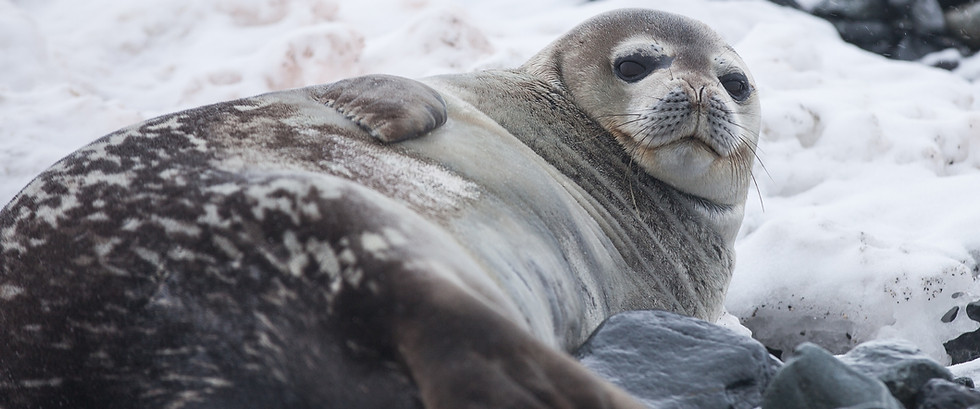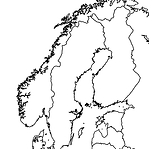
RiSe-Gen: Developing genomic tools for ringed seal population monitoring in the Baltic Sea
Project
Marine ecosystems are profoundly affected by the rapid rate of climate change. Studying its impacts on marine biodiversity is thus of paramount importance to devise effective conservation measures for marine ecosystems. Marine top predators play a crucial role in maintaining ecosystem structure and are important targets for population monitoring.
While traditional monitoring tools provide valuable data on population size and trends, they offer limited insight into populations’ biology and represent a large investment in resources. In contrast, genomic tools are cost-effective complementary approach to species monitoring, allowing to estimate many biological parameters such as population size and trends, number of breeders, reproductive output, dispersal, as well as genetic indices of conservation relevance including inbreeding and adaptive variation.
We propose to develop genomic tools for the monitoring of ringed seal (Pusa hispida botnica), an understudied top predator in the Baltic Sea that is highly vulnerable to climate and sea warming. Our project is divided into three main goals.

Aim 1
Large-scale population genomics analyses of ringed seal in the Baltic
- Genome erosion
- Genomic basis of adaptation

Aim 2
Develop genetic markers for large- and fine-scale monitoring of ringed seals
- Nc, Nb, Ne estimations
- Parentage analyses
- Individual assignment
- Gene flow estimation

Aim 3
Predict the future responses of ringed seals to climate warming,
habitat reduction and hunting intensity
- Species Distribution Modelling
- Genome-informed simulations
Team
The project will be conducted by a multi-disciplinary team of researchers with complementary expertise in population genomics, monitoring and modelling. Dr. Nic Dussex (Principal investigator) works on the genomics of adaptation to climate change in herring and has strong experience with the study of genetic threats to small populations and genomic monitoring. Dr. Morgan McCarthy is an evolutionary biologist with extensive experience in population genomics of seal (e.g., grey seal, bearded seal, walrus). Dr. Anja Carlsson and Dr. Markus Ahola run the national seal population monitoring program in Sweden and have in-depth knowledge of seal biology and monitoring in the Baltic. Dr. Niclas Gyllenstrand leads the genetic monitoring project for brown bears in Sweden and has extensive skills in genetic markers development. Dr. Martin Sköld is a statistician and population modeller for the brown bear genomic monitoring project with expertise in mark-recapture-based estimates of population sizes. Dr. Karl Lundström is an ecologist with extensive skills in species modelling and monitoring of marine mammals and seabirds.
Publications
In progress....
Networks
The team maintains direct collaboration vwith the following national and international networks.











